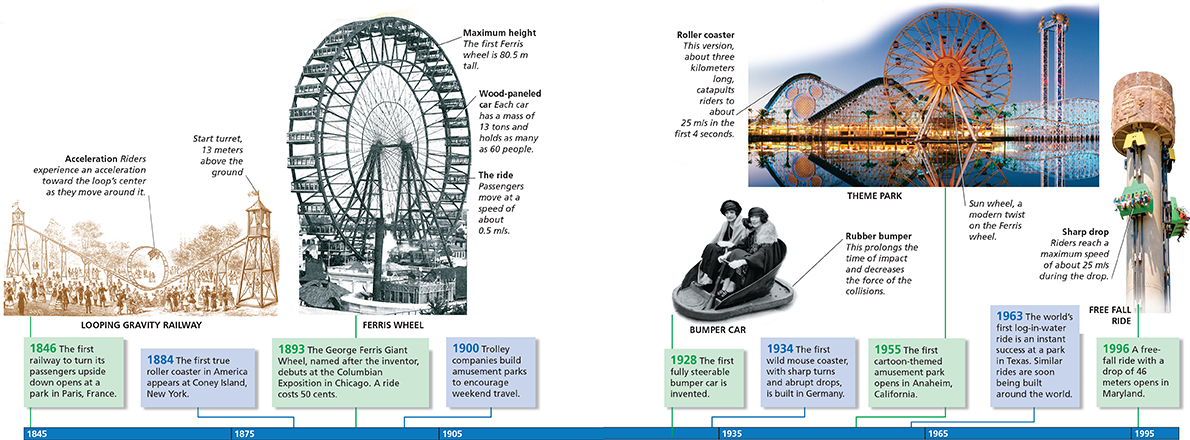Momentum
Imagine a loaded shopping cart and a small glass marble are both slowly rolling toward you at the same speed. The marble is easier to stop. Intuitively, you know that a loaded shopping cart is harder to stop because it has a greater mass. If the marble were moving 100 times faster than the shopping cart, which would be easier to stop? Momentum is the product of an object's mass and its velocity. An object with large momentum is hard to stop.  An object has a large momentum if the product of its mass and velocity is large. The momentum for any object at rest is zero. A huge rocket such as the space shuttle has zero momentum as it sits on the launch pad. A small 1-kilogram meteor traveling at the very high speed of 20 kilometers per second has a very large momentum.
An object has a large momentum if the product of its mass and velocity is large. The momentum for any object at rest is zero. A huge rocket such as the space shuttle has zero momentum as it sits on the launch pad. A small 1-kilogram meteor traveling at the very high speed of 20 kilometers per second has a very large momentum.





 SCIENCE and History
SCIENCE and History